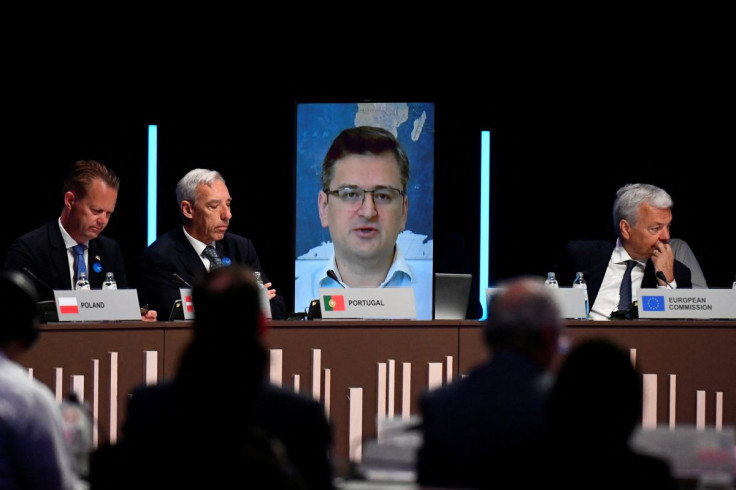West Seeks To Coordinate Evidence Of War Crimes In Ukraine

Ukraine's top war crimes prosecutor and European judicial authorities met on Thursday to coordinate investigations into atrocities during Russia's invasion of Ukraine, warning that a failure to do so would embolden autocrats.
With more than 20,000 war crimes investigations open and different countries heading teams, evidence needs to be credible and organised, officials said.
"Just like a climate strategy and a COVID strategy, we need an accountability strategy," Dutch Foreign Minister Wopke Hoekstra told a meeting in The Hague, adding that raw emotion emanating from stories of rape and murder were not enough to prosecute suspects.
Russian forces have bombed Ukrainian cities to ruins and left behind bodies in the streets of towns and villages they occupied since invading in February. Ukraine says tens of thousands of civilians have died. Moscow denies targeting them.
There have also been some reports of Ukrainians mistreating Russian prisoners, though the vast majority of accusations documented by bodies such as the United Nations are of alleged atrocities committed by Russian invaders and their proxies.
"As this meeting takes place, Russian forces continue to commit atrocities in Ukraine with harrowing intensity," said U.S. envoy Uzra Zeya, who attended the meeting.
"With each day the war crimes mount: rape, torture, extrajudicial executions, disappearances, forced deportations, attacks on schools, hospitals, playgrounds, apartment buildings, grain silos, water and gas facilities."
Russia denies involvement in war crimes and says it is conducting a "special military operation" to protect Russian speakers and root out nationalists.
GIGANTIC TASK
The European Union's justice commissioner, Didier Reynders, noted that war crimes and genocide suspects were still at large from conflicts in places such as Rwanda, Darfur, Syria, Congo and the Balkans.
Countries trying to document crimes faced a "gigantic task, not least because it requires the collection and storage of evidence in the midst of a war", he said.
International Criminal Court Prosecutor Karim Khan said there were reasons for hope because more than 40 states were seeking action on Ukraine through the court. The ICC has sent the largest field team in its 20 year history to investigate.
"At a time like this, the law cannot be a spectator. The law cannot recline in comfort in The Hague ... when it's meant to protect and uphold certain principles that are essential for humanity."
Russia withdrew its backing from the ICC in 2016 after the court referred to Moscow's 2014 seizure and annexation of the Crimea peninsula from Ukraine as an armed conflict.
Host country the Netherlands hopes that Thursday's meeting - the Ukraine Accountability Conference - agrees on evidence sharing, a prosecution strategy and providing international war crimes expertise to investigators on the ground.
Since the Feb. 24 invasion, Ukrainian authorities have so far convicted two Russian soldiers of war crimes.
Russia's separatist proxies have held their own trials, including passing death sentences on two British fighters and a Moroccan in what Western countries consider sham proceedings.
© Copyright Thomson Reuters 2024. All rights reserved.





















